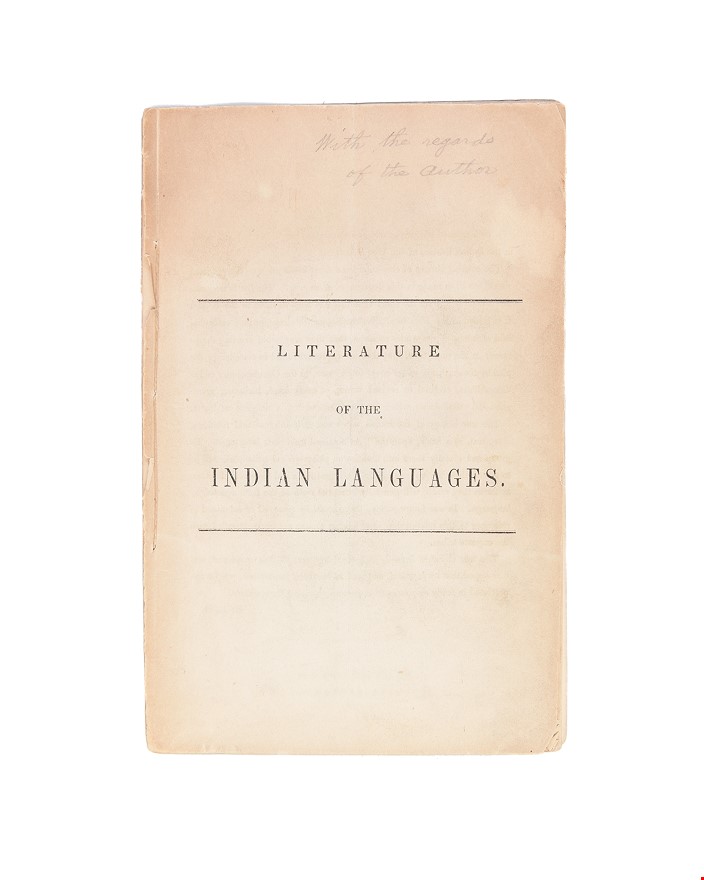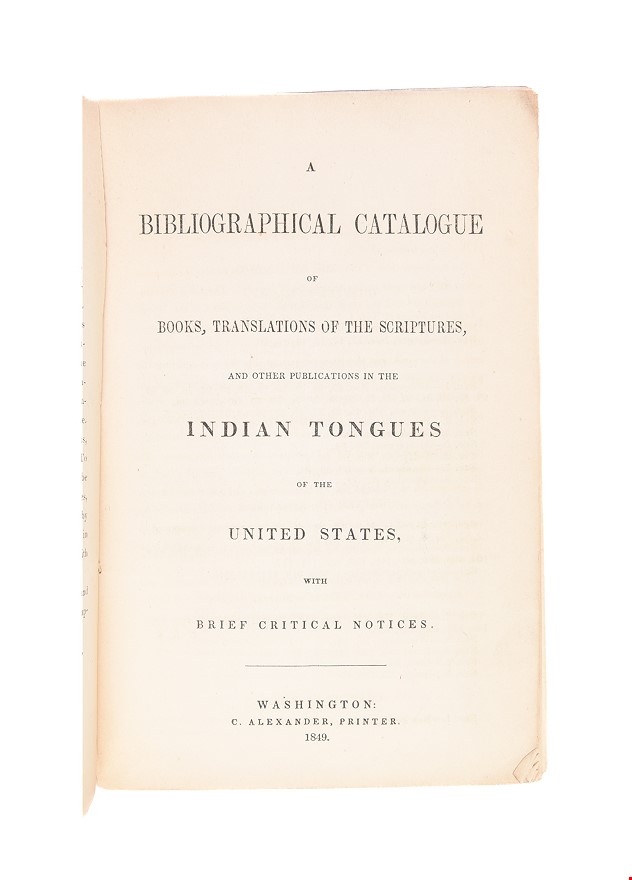A Bibliographical Catalogue of Books, Translations of Scriptures and other Publications in the Indian Tongues of the United States.
SCHOOLCRAFT Henry R. (1849.)
£4000.00 [First Edition]
Please contact us in advance if you would like to view this book at our Curzon Street shop.
RARE PRESENTATION COPY
First edition with the printed slip correcting a line in the prefatory note. 8vo. Stitched printed self-wrappers, a little toning, a couple of creases, but very good. [2], 27, [1]pp. Washington, D.C., C. Alexander,
A very good copy of this scarce title, made all the more desirable by the presentation inscription to the upper wrapper.
Henry R. Schoolcraft (1793-1864) was an author, ethnologist, and served as commissioner of Indian Affairs. During a chequered career, he edited the vital work, Historical and Statistical Information Respecting the History, Condition, and Prospects of the Indian Tribes of the United States ... The six-volume work appeared over the course of a decade (1847-57) and comprised "a miscellany of articles and data covering selected Indian tribes and archaeological investigations that included Captain Seth Eastman’s exceptional lithographs" (ANB).
He somehow managed to produce this small work during the same period, being a bibliography of sacred and secular works translated in to Native American languages in the first half of the nineteenth century. The list includes 139 books and tracts, most of which are now in the Boston Athenæum. The pamphlet is divided into chapters covering the Iroquois, Algonquin, Appalachian, Dacota, and Saptinic languages, which are then subdivided into dialects. For example, Iroquois includes nine books in Mohawk, one in Oneida, and six in Seneca. Each chapter includes an introduction by Schoolcraft who reviews the history of translation for the major languages. A slightly larger edition with 150 titles appeared later.
Schoolcraft outlined the project conducted under the auspices of the Indian Bureau of the Department of the Interior: "The true history of the Indian tribes and their international relations, must rest, as a basis, upon the light obtained from their languages. To group and classify them into families on philosophical principles, will be to restore these ancient relations. Their traditions and historical affinities, so far as they reach, will generally attest the truth of the facts denoted by language. In our future policy, they should be removed or colonized in reference to their relationship, and foreign groups not be co-mingled with the cognate tribes."
The last copy at auction was at New England Book Auctions in 2003.
Field, 1376; Pilling, Algonquin p.450; Sabin, 77840.
Stock Code: 249773





